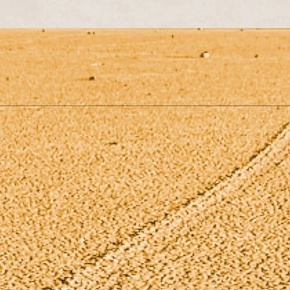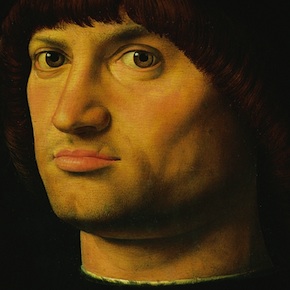
Read the world
“There is only one way to read, which is to browse in libraries and bookshops,” wrote Doris Lessing in the introduction to The Golden Notebook (1962). That post-modernist novel famously pieces a life back together through multiple, juxtaposed experiences in and outside time and consciousness, through and because of writing, as it seeks to create...
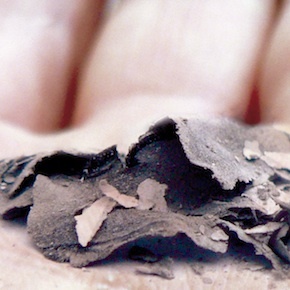
Searching for angels
Landing by Laia Fàbregas is a rare find – a narrative of worlds lost and found, of words that are vital and impossible to translate, of human communion, and communication that must be retrieved in its utmost simplicity from the plexus of relentless alienation and multi-layered facelessness that characterises the aftermath of our post-modernity. Above...
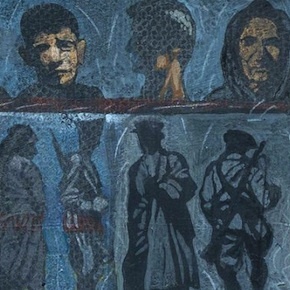
Unfinished business
There is a singular sense of feverish neutrality in Thanassis Valtinos’ writing. A cinematic poise, a travelling eye, a dramatist’s instinctive flair for tension, voice, climax, the lull that contains more menace than any thundering explosion; a perpetual game of darkness and light, an omniscient narrator who never divulges all he knows. Valtinos was born...
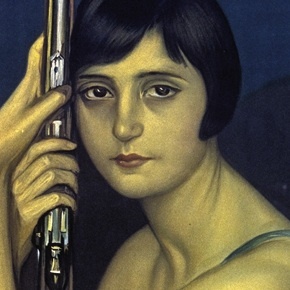
Thirteen ways of looking at Guernica
In the 1930s, the Spanish Reds are promising paraisos to their new recruits. A world freed from class distinctions, slave labour, poverty and squalor, and especially a world liberated from religion – that celebrated ‘opium of the people’. At the same time, those sceptical of Soviet ideology, or vehemently opposed to it, seek to deflect...
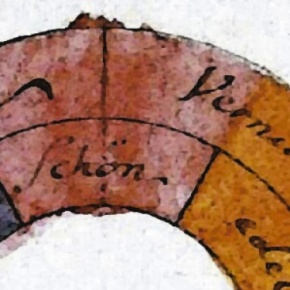
A genealogy of shadows
In September 1941, Walter Andreas Hofer, special art agent for Hermann Goering, was breathlessly scouring France for any and all works that might make suitable additions to his employer’s ambitious, almost gargantuan art collection. Far too often for his liking, he found himself in a mightily frustrating predicament: sequestering individual pieces or whole collections from...

The art of violence
What an artist perishes in me, lamented Nero as he prepared to end his life before the rebelling senators had time to dispatch him. “He had indeed been an artist – he and his predecessors too” writes Tom Holland in the concluding pages of his sweeping survey of the Julio-Claudians, which delineates the rule of...
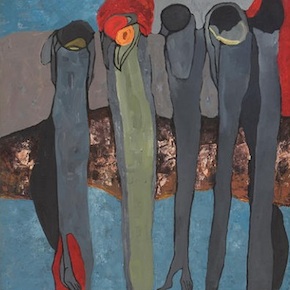
Love all
What is literature if not a way to frame our vision of the world? What is language if not a prism through which to think, explore, relate, question, resolve, civilise – or merely (and vitally) voice despair? And what is love if not the ultimate Socratic demon, fusing together human lives, welding experiences, yielding truths,...

No end in sight
Sunset at the Villa Thalia by Alexi Kaye Campbell. Dorfman/National Theatre “Decision time. Have you chosen hope or fear?” says one of the characters in Alexi Kaye Campbell’s brilliant new play. That character is a forty-something American known simply as ‘Harvey’ and played electrifyingly by Ben Miles. Harvard man extraordinaire, US State Department ‘floater’, man...
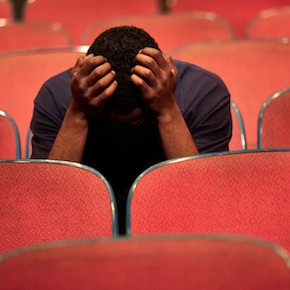
In praise of evanescence
A sense of bemused confusion and intrigued curiosity is the audience’s first impression of David Zinn’s set for Annie Baker’s The Flick, currently at the National Theatre following a strong and successful season in New York, where it won the Pulitzer Prize for Drama. There are seats on either side of the space that ought...
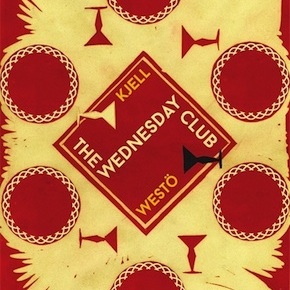
A mirage of horrors
“Our language lacks words to express this offence, the demolition of a man.” Primo Levi The question of how one writes, thinks or speaks about the holocaust and the ideologies and sociohistorical conditions that spawned it, is perhaps as vital now as it was in the direct aftermath of a period when the word ‘hell’...

